Louisville Cardinals coach Chris Mack is heading into the 2019-20 college basketball season with one of the best group of freshmen in the country. Having left the comfy confines of the Xavier Musketeers for a then-embedded in scandal Louisville program, he’s done a more than stellar since taking over for Rick Pitino.
Plenty of it has to do with his talents as a coach and recruiter. However, it goes beyond that. Mack brought plenty of goodwill from fans and media members by how he treated social media with him, easing his transition process.
It’s the stuff of legend in college basketball circles. Moons ago, someone tipped Mack off to Twitter, inevitably resulting in just another coach transcending the sport to become an endearing figure – at least on the surface, as it’s worth noting Mack was packaging his own content for a reason.
“When a buddy introduced me to Twitter six or seven years ago I remember saying to him, ‘What the heck do I need this for?’ Mack said on 93.9’s Louisville Sports Live radio show back in October 2018. “I really think for me, as I learned about it, the news would come to me. I could follow people that I have a strong interest in and those media outlets that cover college basketball I could follow whoever I want and the news would come to me. I really enjoyed that.”
These quotes come well after he already established a devout following on Twitter. At the time of this writing, Mack is just short of 76,000 followers.
“If I don’t see Twitter for six or eight hours I feel really unplugged in my world,” Mack said. “Time and events happen so quickly now. I don’t want to be Mr. Magoo. I want to know what’s happening in college basketball and the world that’s important to me. And what I put out there, there are a lot of Louisville basketball fans that follow our program, and I don’t want to be the guy that looks like I just hand the phone over to our social media coordinator and tells everybody when the scrimmages are, when our first game is. I just want to give them Coach Mack and try to be as real and honest as I can. Some people are going to think it’s corny, but I really don’t care. I have thick skin.”
The last part of Mack’s quote is important. Giving fans and media and whoever else “Coach Mack” and the idea he’s giving them honesty in the process with each of his tweets.
Removing any cynicism from the equation is difficult; although that can say more about me than the coach. Viewing it from a surface-level only perspective, Mack’s ability to connect has done wonders for him with minimal effort. From tweeting out videos of his players performing tricks in his pool, to pinging a media member in a gesture of good faith, to making his program(s) a family affair, Mack has done such a great job of packaging himself a certain way on social media, he’s batted away any chance at criticism with ease.
Does anyone remember the “issue” of Mack and an ESPN sideline reporter? Of course not. It was a minor incident that got lost in the wave of Chris Mack operating as ‘Coach Mack’ on the mean streets of Twitter.
Monday Night Raw at the Macks!
#ICantBreathe pic.twitter.com/twfLHmbqkJ— Chris Mack (@CoachChrisMack) August 20, 2019
You’ll be hard pressed to find anyone to say a single negative thing about Mack. Not from media or fans or even just people observing him on social media. It might be deserved; though there’s little reason to provide a blind benefit of the doubt just because someone is excellent at tweeting.
Nevertheless, Mack must have left some of his social media branding tactics back at his old stomping grounds. Travis Steele, who took over for Mack at Xavier in 2018, recently sent out a tweet clearly meant to result in maximum engagement.
NEED some help! We don’t know our baby’s gender, and we haven’t settled in a boy’s name yet. Sterling, Anderson, Stainless, or Richard? What’s your favorite?
— Travis Steele (@CoachSteeleMU) September 29, 2019
It checks off all the appropriate boxes to go viral. Obviously, it helps he’s someone in the limelight, but he’s added his unborn child into the equation, asking people to help name him or her on behalf of his family. All that’s missing is the tweet being prefaced with “social experiment” or “I just want to see something” to make this no different than a large percentage of the purposed engagement-bait people can see on Twitter at any given moment.
Is it wrong, inherently nefarious or immoral to bring your family into your Twitter life as Steele and Mack sometimes do? Of course not. If a person is willing to make private matters public in the name of whatever it is in the name of – goodwill, earnest pride in family, peak dads being dads, or whatever – so be it. I’ve often found myself tweeting out an image of my daughters in peak dad moments to brag about an accomplishment, only to delete the posts in great haste out of fear of Twitter being Twitter, with people taking out their frustrations on my children who have nothing to do with anything that’s going on.
As social media continues to evolve, it becomes difficult to cut through what is branding and what’s sincere moments of transparency. There’s issues within my industry of sponsored-content being shared on reporters’ Twitter feeds, resulting in potential issues of conflict. Similar issues extend to other ways people attempt to garner benefit of the doubts from fans and media, such as Mike Leach playing up his rambling, goofy charm during press conferences, endearing himself to media and fans that few cover his problematic history in any meaningful way. Instead of that, it’s usually about how funny he is or some other mythologizing of a sportsball coach in a way history taught us we shouldn’t.
While none of that applies to Mack or Steele, it helps to highlight how the entire world is trending toward becoming a brand. Brands were always brands, but so are people now. Instead of the work being the work, it’s the people doing the work trying to package themselves as a brand in order to land in proper standing with those who matter most – media and fans (this applies to people in my own field who are trying to create communities and loyal readers).
For Mack, it also obviously helps that he’s one of the best coaches in the country. His social media routine – whether it’s shtick or genuine transparency – wouldn’t play as well if he were a sub-500 coach. Tom Crean, as an example, will sometimes attempt to use social media to his benefit, but often ends up on the wrong side of jokes. It’s not because he’s doing something wildly different than Mack, but since he’s not viewed as the same caliber coach.
For disclosure: Much of this could be the cynic in me. A private person who rather his family life stay hidden from the public domain. However, the same guy who sometimes has an urge – again, peak dad season situations – to share whatever about my kids to people who are essentially strangers. Furthermore, even though part of me is under the firm belief much of any coach’s routine on social media is packaged branding or just a grift, there’s another part of myself wanting to applaud them for having the courage to be “out there” in a way few others are capable.
Alas, Steele taking a page out of the Mack playbook is harmless. No one is going to go after him over crowdsourcing his unborn child’s name, even if he’s obviously not going to name the baby by way of a Twitter poll.
Still, as we move deeper and deeper into these social media woods, unable to separate the trees from wild animals living among them, we’re almost certainly getting less realistic versions of people from those same folk who invoke the idea of transparency with every family video share on Twitter.
The reality has forever been simple. A general public never truly knowing people or what happens behind closed doors. Just like offseason workout videos, in which players are only filmed hitting jumpers and never bricking a layup in an attempt to hype fans into a frenzy, you’ll never see a famous person intentionally share the ugly moments with strangers on social media. Nor are they obligated to, but it’s something to keep in mind whenever traversing Twitter or Facebook, especially if you get depressed by the seemingly luxurious lives of other people and their families without a hint of hardships in the mix. It’s a prepacked facade closer to fiction than fact.
Maybe I’m far too jaded, untrusting of strangers and the actual iffy character in this social media subplot, unable to enjoy people being thoroughly open in an age when most prefer to hide behind coach-speak.
Hopefully, that’s the case. I much rather be 100 percent wrong than 10 percent right about coaches using their families to curry favor with the general public. Truthfully, the alternative is just too dark to consider, which is why it’s never even a question asked.
–
Editor’s note: This column originally appeared on Forbes. It’s republished under terms of the publisher-author agreement under the author’s name.
Joseph Nardone has been covering college basketball for nearly a decade for various outlets in a variety of ways. You can follow him on Twitter @JosephNardone.
Also, be sure to follow the ClutchPoints NCAA Facebook page for more great college basketball discussion.


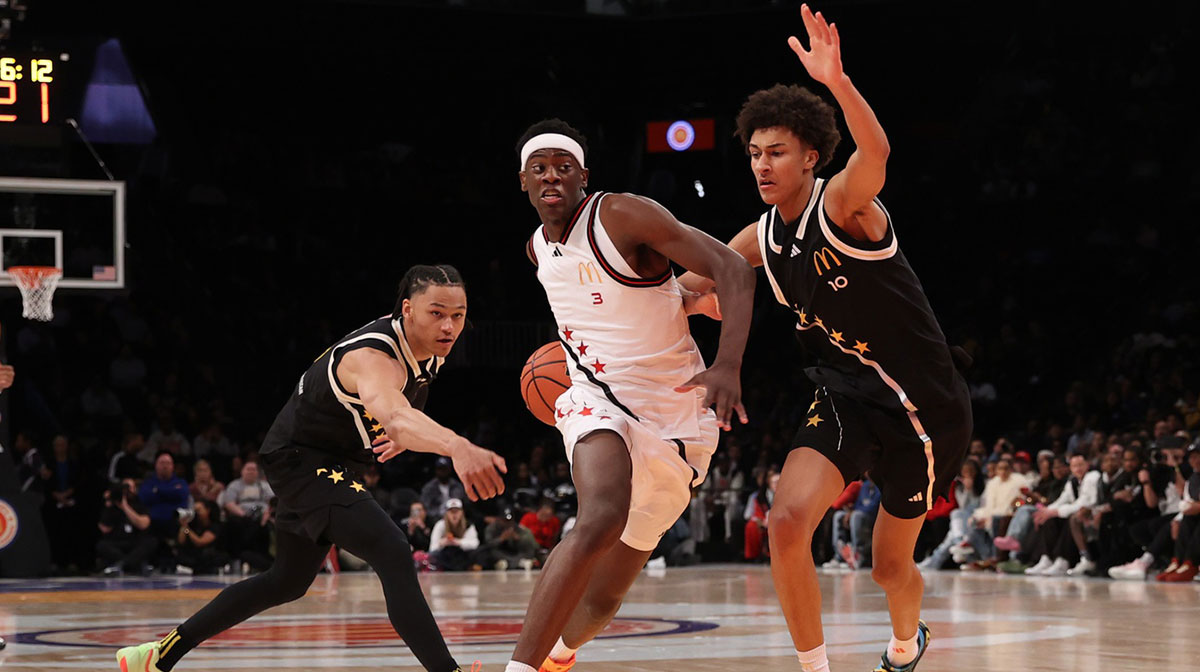
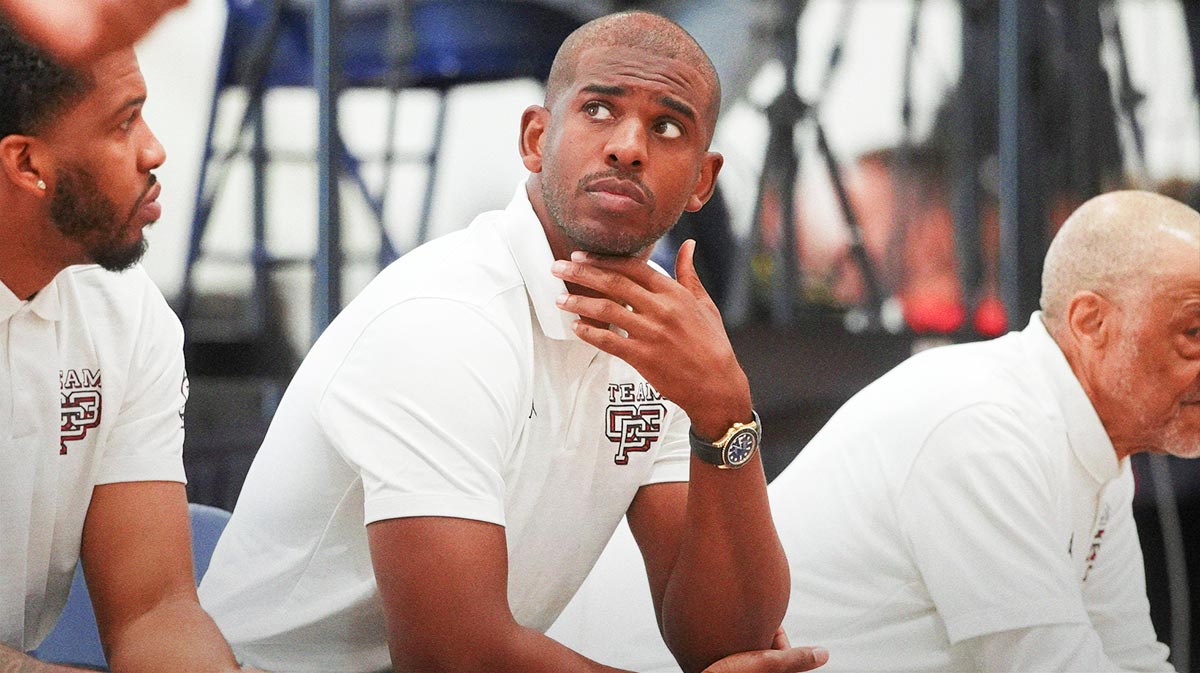

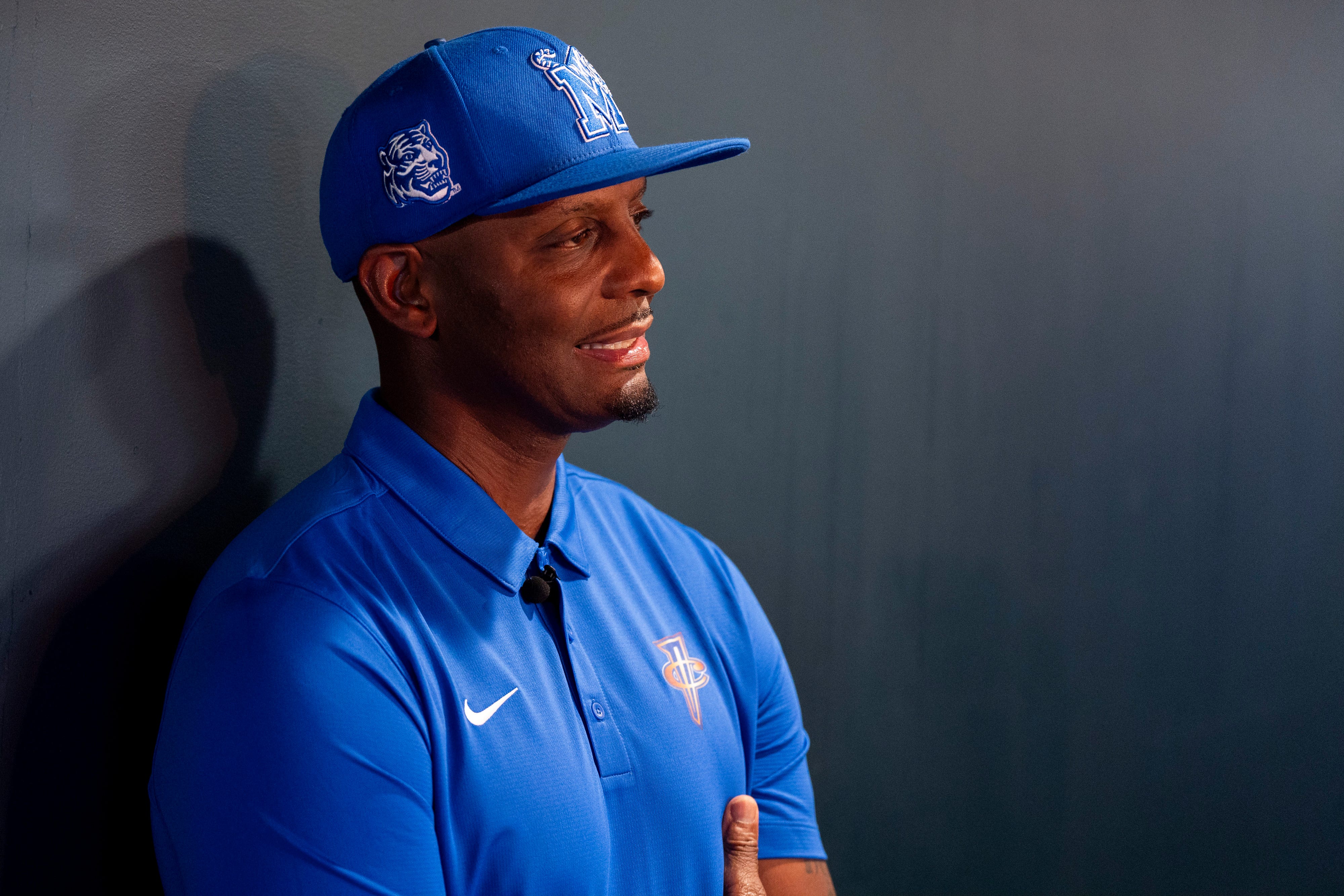





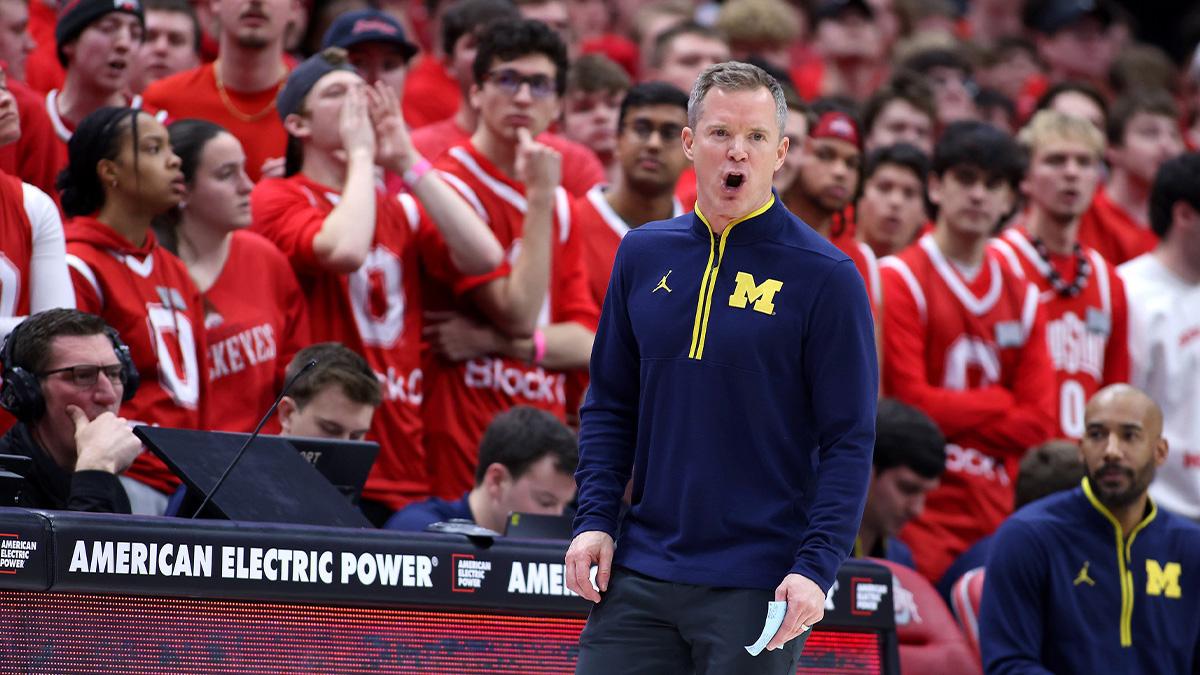


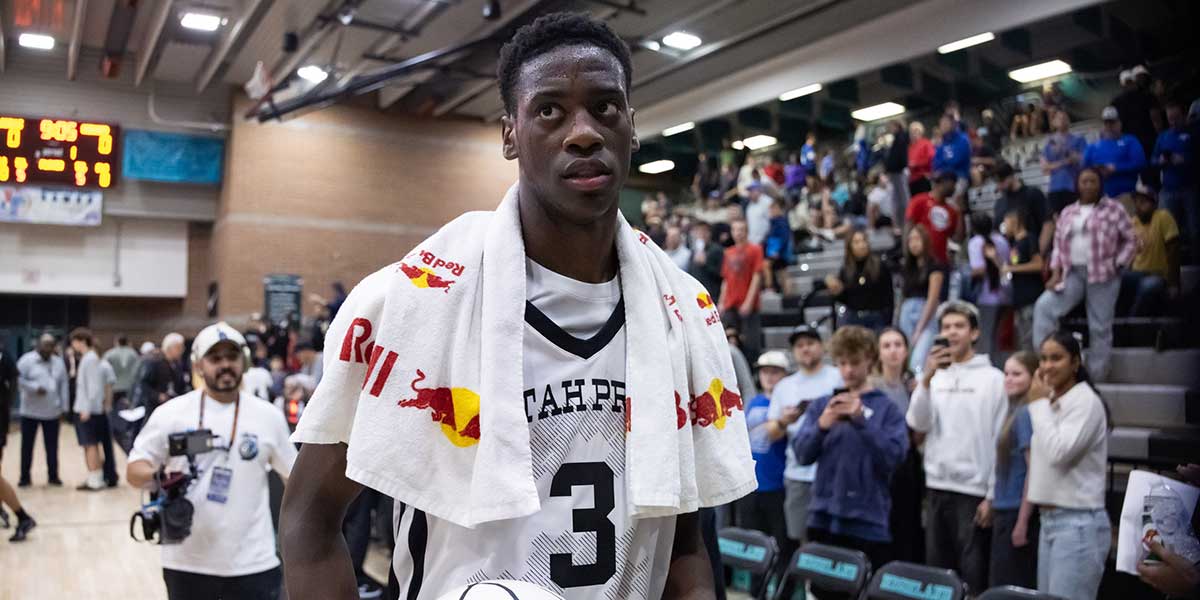
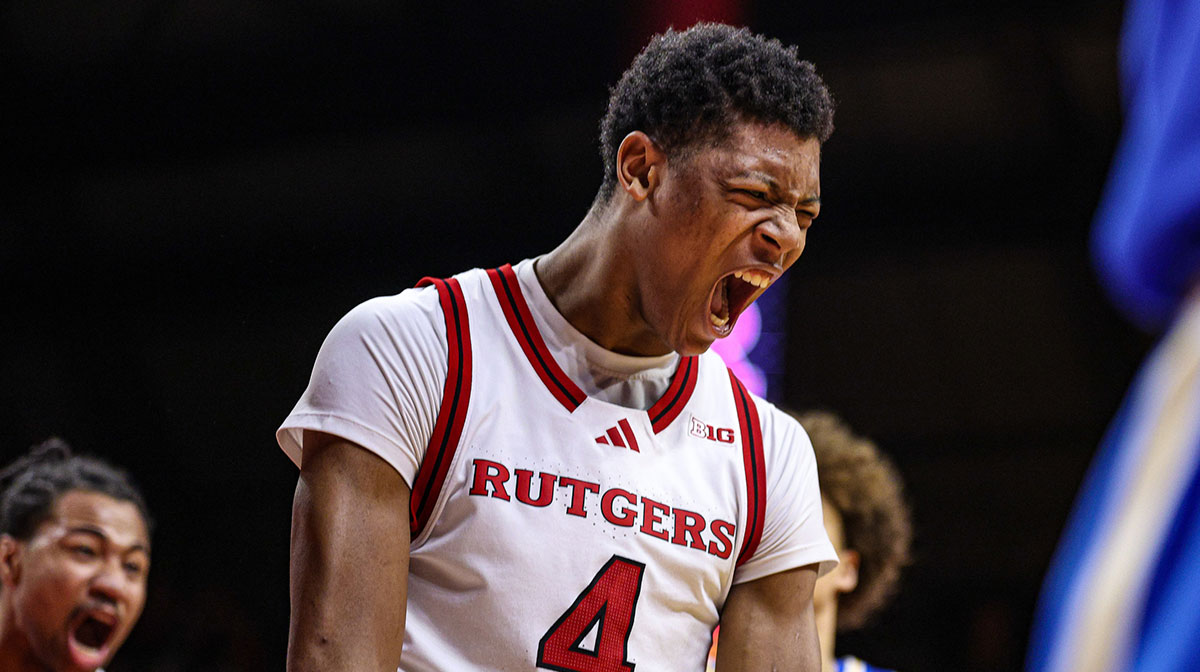
![How Amarion Dickerson will impact USC [Exclusive]](https://wp.clutchpoints.com/wp-content/uploads/2025/07/IMG_0026.jpeg)
